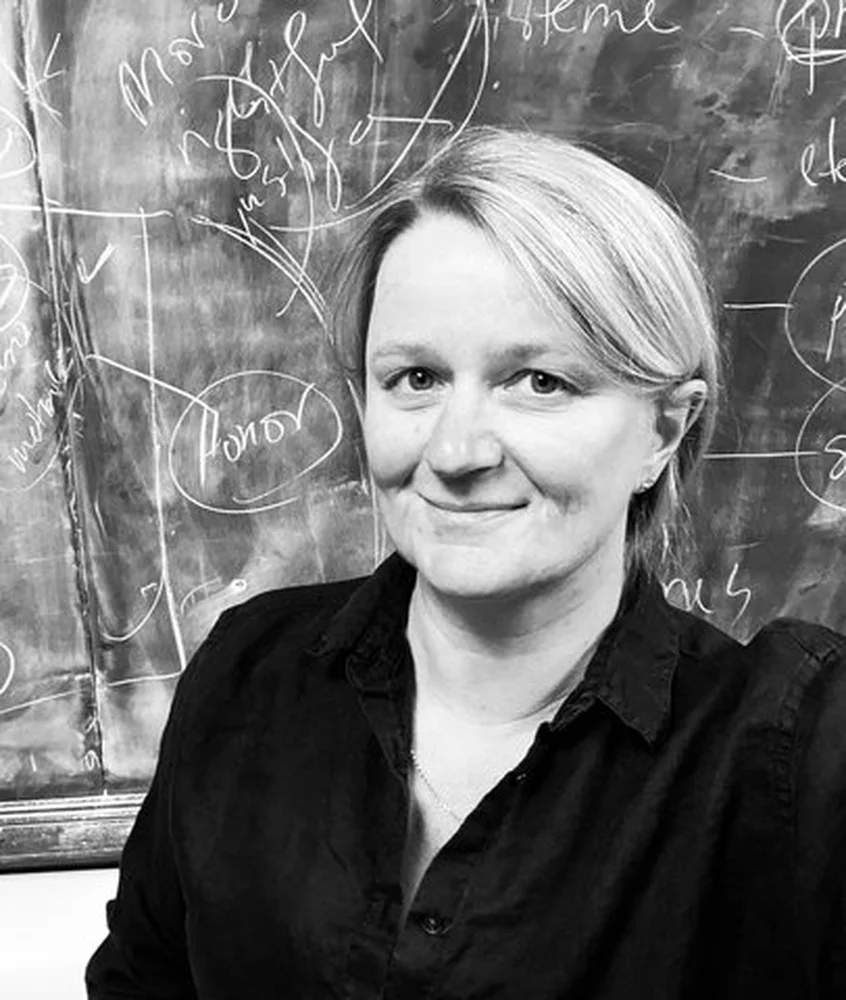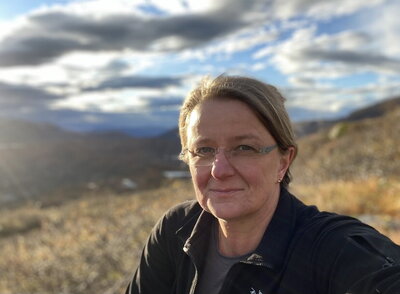
This story was written by Ashley Gilbert, an upcoming sophomore journalism student at the University of Illinois. Ashley aspires to become an investigative journalist and use journalism to have an impact on the world
The University of Illinois at Urbana-Champaign is home to some of the greatest academics in the world, one of those great academics is Professor Helga Varden of the philosophy department.
Prof. Varden grew up in southwest Norway on an island called Osterøy, which is just north of Bergen. In Osterøy, soccer was a very popular sport in the community. She was in love with the sport and it was her main passion throughout high school, until she tore a ligament in her leg when she was 17.

However, her not being able to play soccer for a year led her to focus more on school which then set her life in motion to become a teacher.
“And so that was my last year of high school, which also meant that from liking school, I went to becoming quite the perfectionist about it. And so, of course my grades went up quite a lot,” Varden said.

After Varden graduated high school she went on to teach primary school before attending Newcastle University in England. When she was there she worked on getting a degree in business management, but soon realized that was not the career path she wanted. After college she went into political theory and that combined with her business management degree could land her a job as an accountant in Norway. But she was still not sure if that's what she wanted to do either. This is what led her to study deeper into theory. “But I did realize that I really loved theory,” Varden said.
After this revelation she went to “think about life” in northern Norway. She continued to teach primary and secondary school. While she was teaching she pursued a second undergraduate degree and that's when she enrolled in her first philosophy course. That class helped define her new role in life.
“I went to my first philosophy class, and I was so high afterwards... then it was kind of settled, it was just a matter of how to do it,” Varden said.
After she finished her undergrad, she moved to Toronto, Canada for her doctorate. Upon completing her PhD she was hired by the University to be a professor in philosophy. As she continued to study philosophy she became very interested in the German philosopher Immanuel Kant. Varden describes philosophy as having different “spheres” which can be in the realms of science, politics, beauty or ethics to name a few.
“Most philosophers do one sphere maybe, but even within that one sphere they do one thing. So a lot of philosophers we’ll say do legal political philosophy, or ethics or something. He does it all,” Varden said.
She has included Kantian theory in all of her writings. She writes about topics stretching from sex to the autonomy of women.
“One of the cool things about his theory is, it actually has a better account of sexual orientations and gender identity than any of the available ones,” Varden said.

In terms of being a teacher, Varden prides herself in teaching all of her students to genuinely love learning. She seeks to inspire her students to pursue academia, even if they are on the fence about it.
Past student Krupa Patel, a PhD philosophy student at Harvard University, thanks Varden for pushing to keep going to school and growing her knowledge about philosophy. “I can’t do graduate studies, I probably can’t afford to,” Patel said, “ Then I learned from her they come with a stipend, it's possible for students to do it and be financially secure.”
This was the same for one of Varden’s current graduate students, Ashli Anda who is studying philosophy and writing her dissertation under Varden surrounding Kantian theory. She has been working on her PhD while also starting a family. “When I have been struggling, she is really validating and reassuring and reminds me that I’m here for a reason, and I am capable of doing this kind of work,” Anda said.
“I love seeing my students being able to do philosophy,” Varden said, “That is the most amazing gift that I can imagine giving...but when students take ideas and run with it, and they can suddenly use it, it's an incredible experience.”

Varden has written extensively about social topics and how Kantian theory relates to them. Amidst our social political climate, Varden's used Kantian theory to develop her ideas about women's bodies. Kantian theory argues that the law should not be involved in the decision making a woman and her pregnancy until there is evidence of “quickening.” Quickening refers to the moment when the fetus is no longer multiplying its cells rapidly and is considered a functioning human being. The issue is though, there is no way to tell what time that is for each pregnancy.
“It's impossible to say one specific time that would be true for all human beings when quickening happens,” Varden said, “Then I give some arguments in cases of health concerns of various kinds so that itself is really relevant.”
She argues that the law has to give the person that option before fetal movement starts and that they should keep it up to the mother until that point in time.
“You can’t claim that authority unless you also make it possible for people to make the choice before that time and not just make the choice ‘Either I want to keep it or have an abortion,’ but it has to be possible to take an abortion. You can’t make it physically impossible to make an abortion or, financially impossible,” Varden said.
Varden finds that politicians and governments internationally are moving away from the idea of helping their people and more towards restricting and destroying them.
“We are so easily at the moment politically moved by destruction, the motive of destruction rather than a very difficult one which is construction, fixing things and making things better,” Varden said.
Helga Varden is Professor of Philosophy, of Gender and Women Studies, and of Political Science. She has held visiting positions at the University of Chicago, Northwestern University, and the University of St. Andrews and she is one of the executive editors of the Canadian Journal of Philosophy. Her main research interests are Kant’s practical philosophy, legal-political philosophy and its history, feminist philosophy, and the philosophy of sex and love. In addition to her Sex, Love, and Gender: A Kantian Theory (Oxford University Press, 2020), Varden has published many articles on a range of classical philosophical issues including Kant’s answer to the murderer at the door, private property, care relations, political obligations, and political legitimacy, as well as on applied issues such as privacy, poverty, non-human animals, and terrorism. She has held leadership positions in several professional organizations, including the American Philosophy Association, the North American Kant Society, the International Association for the Philosophy of Law and Social Philosophy, and the Society for the Philosophy of Sex and Love. At the UIUC, she currently serves in the Faculty Senate, on the Senate Executive Committee, and on the University Senate Conference.
Editor's Note: At the time of the interview with Professor Varden, the Supreme Court's decision to overturn Roe V. Wade had not yet been published.